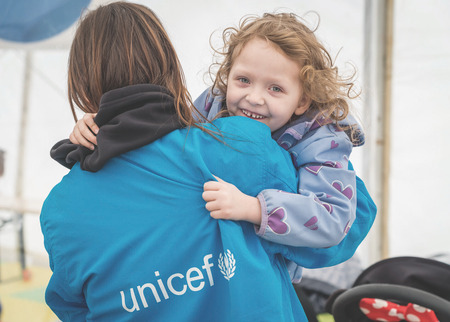Who benefits from the aid money donated by voestalpine in the course of the voestalpine cares run?
Since the beginning of the war in Ukraine in February 2022, UNICEF and partners have been working on the border with Romania to respond to the urgent need of refugees, especially children.
What specific aid measures are being financed with voestalpine's donations?
In order to respond to the refugees' initial needs for protection, orientation, basic care and health, UNICEF has set up a comprehensive response system: the Blue Dots Centres. These important shelters are the first points of contact for children and families fleeing to Romania. They are organised by UNICEF together with the UN Refugee Agency, local authorities and partners in Romania. Families receive basic legal advice and information about local social and health facilities at the Blue Dot. Relief items such as hygiene products and blankets are provided to supply families with basic necessities. And safe places to sleep are also available for families to rest and be referred to longer-term emergency shelters if needed. The Blue Dots are open throughout the day and offer childcare as well as translation services.
Why is corporate financial support important for your organisation?
UNICEF does not receive mandatory contributions from governments. We finance our aid exclusively through voluntary contributions. With voestalpine's donation, the Blue Dots can be run professionally.
What can the voestalpine cares run achieve for the Blue Dots?
With a budget of 100,000 euros for the Blue Dot programme, 5,000 refugees (mainly women and children) can be cared for in the facilities for six months. Since the start of the response until the end of 2022, 132,417 people, including 33,191 children, have received at least one of the services offered in UNICEF-supported Blue Dots. 15,772 children received learning materials and 5,495 Ukrainian children received access to formal and/or non-formal education.
What criteria are used to evaluate the impact of donations?
UNICEF was already active in Romania before the Ukraine war and benefited from an existing staff and logistical structure that was gradually expanded. Thus, alliances could be built and a constant supply of refugee children can be guaranteed. Monitoring is done through regular field visits and the use of the "HACT" mechanism, while the Blue Dot based database allows tracking of the influx and allocation of priorities. UNICEF cooperates with local and international NGOs, local authorities and social services to ensure that services are maintained and adapted to the local situation.
